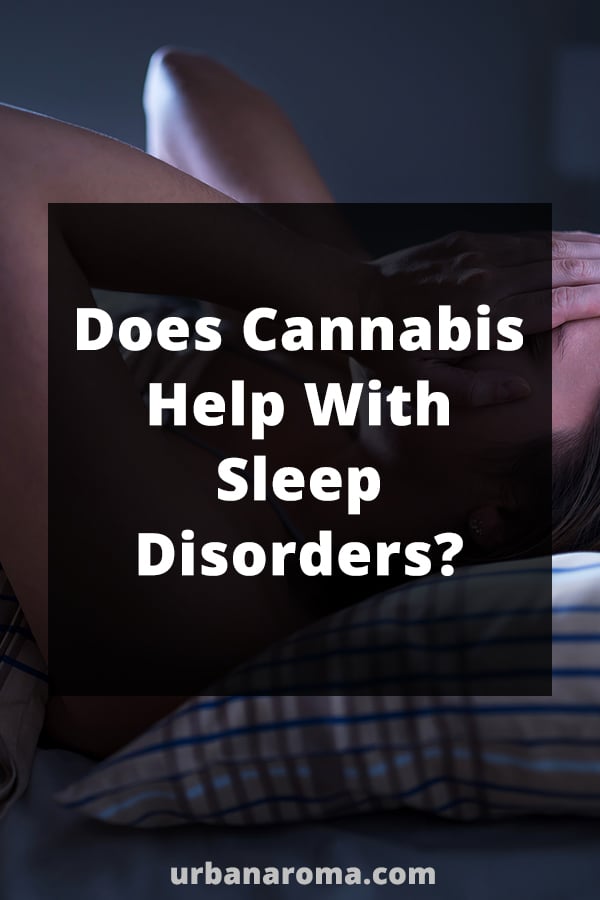Nothing feels better in the morning than waking up feeling refreshed and rested. When you can't sleep well at night, it can be detrimental to your mental health and physical health. Studies show that when you can't get a good rest at night, it affects every aspect of your life. Instead of heading to work ready to face the day, you want to crawl back in bed, and stay there.
What Causes Sleep Disorders?
There are many conditions that cause sleep disorders. Pain, anxiety, worry, stress, restless leg syndrome, narcolepsy, and sleep apnea are just some of the things that cause people to not be able to fall asleep and stay asleep. These conditions can cause sleeplessness through physical distress, or the mind can be overactive and hard to shut off. It's not uncommon to experience sleeplessness occasionally, but if it becomes a chronic condition, treatment becomes a necessity. According to the American Sleep Association (ASA), 1 in every 3 people will experience a sleep disorder at some time.
How Are Sleep Disorders Treated?
For some, turning to sleep medication is the only way they can seem to get any rest. Web MD lists numerous prescription medications for sleeplessness. Restoril and Halcion are sleep medications that have been around for some time. Lunesta, Ambien, and Belsomra are newer on the market. These are just a few of the prescription medications available for moderate to severe insomnia.
Some people choose over the counter medications because they are usually less expensive, and don't require a doctor's visit.
Side Effects Of Sleep Medications
The bad thing about sleep medications is they can often make you feel tired, groggy, and worn out when you wake up in the morning instead of feeling rested, and these are some of the lesser side-effects. More severe side-effects can include sleepwalking, sleep-driving, accidental overdoses, falling, and other serious issues. The Food and Drug Administration (FDA) reports that taking some of these medications could result in injury or even death in rare cases.
The FDA also recommends that patients need to discontinue using sleep medication and talk to their doctor if they find they have engaged in activities while not fully awake, or if they have memory issues while taking sleep medication.
Using Cannabis To Treat Insomnia
Medical marijuana can treat a variety of conditions, including sleep disorders. Research indicates that using medical marijuana for sleep disorders can reduce stress-related symptoms.
A study conducted by the Canadian Forces Health Services Operational Trauma and Stress Support Centre in Ottawa indicated marijuana could help individuals with post-traumatic stress syndrome (PTSD) that suffer from stress-related nightmares. It suggested marijuana could be helpful for other stress-related sleep disorders as well.
When someone has problems sleeping because of pain issues, cannabis can offer relief. Obtaining pain relief at night can be very helpful when it causes sleeplessness. According to Medical News Today, medical marijuana is excellent for treating chronic pain, and is a safer alternative to opioids for some.
Which Cannabis Strains Are Best For Sleep Disorders?
There are many different cannabis strains. Different cannabis strains can produce different results. Read our full story on understanding indica, sativa and hybrid strains for tips on what may work for you:
If indica and sativa aren’t necessarily helpful or accurate terms to consider when purchasing cannabis, what are? Well, the cannabinoid content and terpene profiles are a great starting place. If you’re lucky enough to be in a recreational market where testing is a requirement, lab results will be available and can be used to help guide you (ask for a Certificate of Analysis or COA to get a detailed breakdown of both cannabinoid and terpene profiles). Considering the THC percentage, whether or not other cannabinoids such as CBN are present, and evaluating the terpene profile can give you an idea of what to expect from a specific variety. (Read our Terpene Guide to understand how terpenes contribute to the effects of cannabis.)
It's always important to discuss with your doctor before stopping any prescription medication you might be taking. If your doctor thinks it might be helpful to try cannabis for a sleep disorder, you may have to experiment to find the cannabis strain that will work best for you.
Is Using Cannabis For Sleep Disorders Legal?
There are currently 15 US states that have legalized marijuana for adult use, and 36 states with medical marijuana programs, which vary from state to state with different lists of qualifying conditions. Some medical marijuana programs allow you to smoke cannabis, and others only allow the use of cannabis oils containing limited amounts of THC.
For more information on legal cannabis in your state, visit NORML.org.
